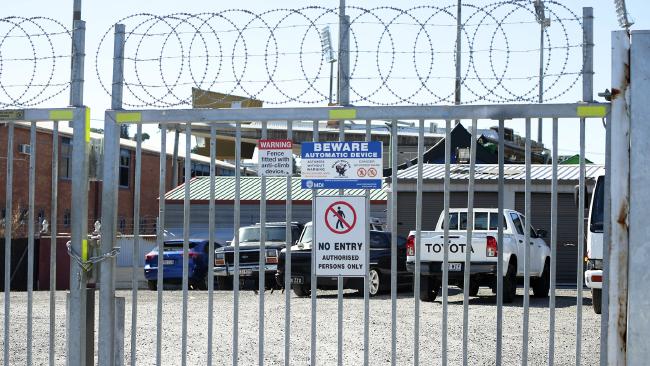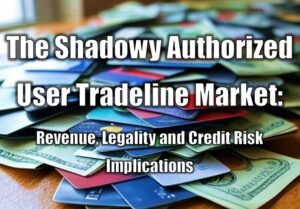
Editorial
So, you have a fence around your storage yard, perhaps some barbed wire on top and cameras recording everything going on. Why? Security of course. As an agency owner, it is crucial that you secure your business and the recovered collateral. So, why would you give a person you don’t know access to your yard and the vehicles stored on it?
Well, that’s the newest infringement on repossession agencies that is occurring now. It has been brought to our attention that some lenders who have retained a national key cutting service to use our facilities to make keys for their collateral. Can you imagine what an auction’s response would be if a client informed them they hired a national detailing service to clean their cars at their facilities?
How does it make sense that in the regulatory heavy world of the CFPB and Dodd-Frank and all of the requirements for maintaining personal information of borrowers and the heavy vetting of repossession companies and employees, that you should be required to allow access to your lot and the vehicles that you are responsible to non-vetted lender hired contract employees who do not understand the compliance regulations or the industry rules and regulations?
What’s worse, is that in a repossession fee environment that is basically been held flat by the lenders and forwarders with contingent assignments, they have found yet ANOTHER ancillary fee that repossession agencies have traditionally been able to supplement their incomes with. KEYS!
- Storage Fees – GONE!
- Personal Property Fees – GONE!
- NOW, Key Fees – GONE!
Aside from the outrage of cutting repossession agencies off at the knees once again, there are clear and obvious regulatory contradictions that this attempt at intrusion creates. The national and state associations find this troubling on a number of fronts.
this attempt at intrusion creates. The national and state associations find this troubling on a number of fronts.
Section 1002(26) of the Dodd Frank Act clearly places these services under “Any person that provides a material service to a covered person (the repossessor)”, and therefore the following comes into play.
The Consumer Financial Protection Bureau (CFPB) states in the compliance bulletin and policy guidance; 2016-02, “The CFPB recognizes that outsourcing can be an appropriate decision”; however, the CFPB states, “The mere fact that a supervised bank or non- bank enters into a business relationship with a service provider does not absolve the supervised bank or non- bank of responsibility for complying with federal consumer financial laws to avoid consumer harm.”
It is our responsibility to protect the consumer and consumer information from potential abuse and misuse that might lead to Identity theft.
Collateral, as well as the consumer’s personal property and Non- Public Personal Information, includes a verifiable chain of custody.
We are required by most lenders to do national background checks on our employees and perform random drug tests.
We are required to have them take national certification programs and then continuing education all in the name of CFPB compliance.
Many lenders require us to take pictures of the vehicle when it is recovered, take pictures when it’s being transported, and transporters have to sign condition reports. This proposal would add another layer of time consuming and expensive procedures.
We are required to carry exorbitant amounts of insurance for liability and workers compensation.
Many of our client’s contracts prohibit non-employees from entering our premises and for good reason.
Because within most states a person could take a picture of a license plate or a vehicle identification number and then gain access to non-public personal information. We might have to require them to empty their pockets of any devices capable of recording information that an unscrupulous person could use to then commit a number of red flag violations.
All of this does not even consider the liability the agencies face from allowing unsupervised locksmiths access to their lots. Liabilities include, obviously personal injury as well as their mere presence in the event of a violent incident such as a drive by shooting or other violent incidence created by angry borrowers. Merely allowing these contractors access to a vehicle, especially before personal property has been removed, creates the risk of the release of private personal borrower information. So what are you going to do, stand over them the entire time? Who has that kind of free time, really?
To limit the potential for statutory or regulatory violations and related consumer harm, supervised banks and non-banks should take steps to ensure that their business arrangements with service providers do not present unwarranted risks to consumers.
These steps should include, but are not limited to:
- Conducting thorough due diligence to verify that the service provider understands and is capable of complying with Federal consumer financial law
- Requesting and reviewing the service provider’s policies, procedures, internal controls, and training materials to ensure that the service provider conducts appropriate training and oversight of employees or agents that have consumer contact or compliance responsibilities
- Including in the contract with the service provider clear expectations about compliance, as well as appropriate and enforceable consequences for violating any compliance-related responsibilities, including engaging in unfair, deceptive, or abusive acts or practices
- Establishing internal controls and on-going monitoring to determine whether the service provider is complying with Federal consumer financial law
- Taking prompt action to fully address any problems identified through the monitoring process, including terminating the relationship where appropriate
Our Investigation has shown that only thirteen states require state wide licensing with three more requiring a license in only certain counties or cities. Locksmiths are not required, and in my discussions with locksmiths and a national association that represents locksmiths, they do not require background checks on employees, bonding, random drug testing, nor any consumer compliance training. The national association I spoke with does only one background check when you join the association, but there is no annual review.
This proposal as it stands would place the repossessor and clients in harm’s way. The potential savings is outweighed by the risk to the repossessors and potential consumer harm.
Where does this end? I am seriously unable to think of anything more they can take from you except your business itself. Are you willing to just roll over and take it or will you dig in your heels and “Man-Up” or “Woman-Up” whatever the case is? There is a short and simple word every three year olds knows that perhaps everyone should put into play. ‘NO!” It is that simple.
So, you’re afraid of losing a client or maybe two and afraid you’ll have to close your doors and lose everything you’ve worked for. Well, close them now or close them later. There is no way this ends well unless there is a unified response of “NO!”
Thank you,
Kevin Armstrong, Editor, CUCollector
This editorial has been reviewed, contributed to and approved by;
Allied Finance Adjusters
American Recovery Association
California Association of Licensed Repossessors
Time Finance Adjusters
Recovery Specialist Insurance Group










Facebook Comments